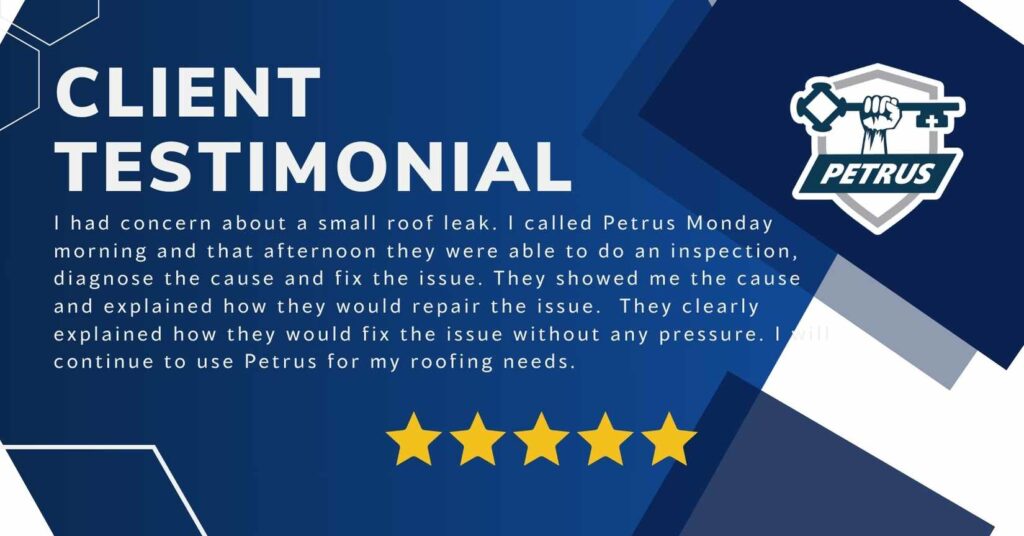What happens when your insurance provider confirms that you have enough storm damage to merit a full roof replacement? First and foremost, you should rightfully celebrate, realizing that you have to pay a very minimal cost to replace something that is not cheap (i.e., your roof). Once the approval has occurred, you get to meet with your roofing contractor to finalize the shingle colors, assess the full scope of the work and all the necessary warranties, and finally prepare for build day. It is a relatively wonderful and simple process.
But sometimes…
There are those moments when a homeowner has their roof bought through their insurance provider, and then moves in a slightly different direction. Sometimes we as homeowners will turn to our contractor and say the well-known phrase:
“Can you give me a quote?”
Such a question can feel like a dagger to the heart for a roofing contractor. However, this is actually a great teaching moment and opportunity. Contractors need to be radically customer-centric, and by doing so, it allows them to better understand why homeowners would request a quote. So let’s unpack this a bit.
We begin with a simple example. Let’s say that your insurance provider agrees to offer you a full roof replacement. The replacement cost value (RCV on insurance paperwork) of your roof is $30,000, and your deductible is $7,000. So your insurance provider will send you a payment of $23,000. However, they will not send this all at once. Your insurance provider will split the payments into two separate distributions.
The first payment you will receive is connected with the actual cash value (this is the ACV line on your insurance paper work) of your roof. This first payment is your ACV minus your deductible. It would be found under Net Claim. This first payment, along with your deductible, is what you would pay to your roofing contractor when you go through the contract. The insurance company needs to see that these payments have actually been paid.
After your new roof has been built, and a certificate of completion submitted by the contractor, the insurance company will then send you the final payment. This is called the recoverable depreciation (an additional line item in your insurance scope of work). Once the insurance company receives confirmation of your roof replacement, they will send this final payment that will go to your contractor.
This is a quick snapshot of the insurance process. So let us now return to our main question: Why would you request a quote from your roofing contractor after insurance has agreed to buy your roof?
A variety of answers can be given, but we will just focus on a few.
One reason you might be asking the contractor for a quote is simply because you do not yet realize that your insurance provider has already set the price. In a real way, there is no quote to give because insurance has already provided it. In the example above, it is the $30,000 replacement cost value. That is the price! Your chosen contractor must abide by this price and build the roof according to the scope of work laid out by insurance.
An additional reason why you might request a quote is because that is how the insurance companies used to operate. After insurance agreed to replace your roof, you would be told to “get 3 estimates.” And while there might be sufficient reasons to do so, which one would seem to be the most likely reason? If you answered the one that is the cheapest, then you would be correct.
But you should ponder whether cheapest is always and everywhere synonymous with what is most valuable. When getting a new roof, you want to experience maximum enjoyment with minimum maintenance, ensuring you will be happiest in the long-run.
Perhaps the most significant reason you might be interested in a quote from your contractor in this scenario is due to a lack of trust. Your roof is the fundamental system protecting your home, and thus should not be a decision you take lightly. And thankfully, with the information readily available online, the leverage is really in your hands.
You should look at your contractor’s website and search for Google Reviews of the company. Find if they list prices for their services, and whether they are addressing your deepest fears and concerns. Thoroughly read through what others have said about working with them, both on Google and on Facebook.
We all want to work with a company that is communicating effectively, setting clear expectations, and meeting those expectations. Remember, you cannot trade in your roof if you are unhappy and dissatisfied.


